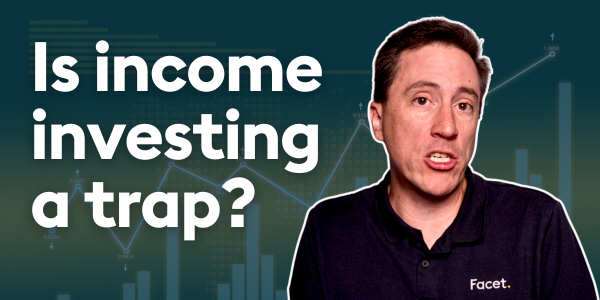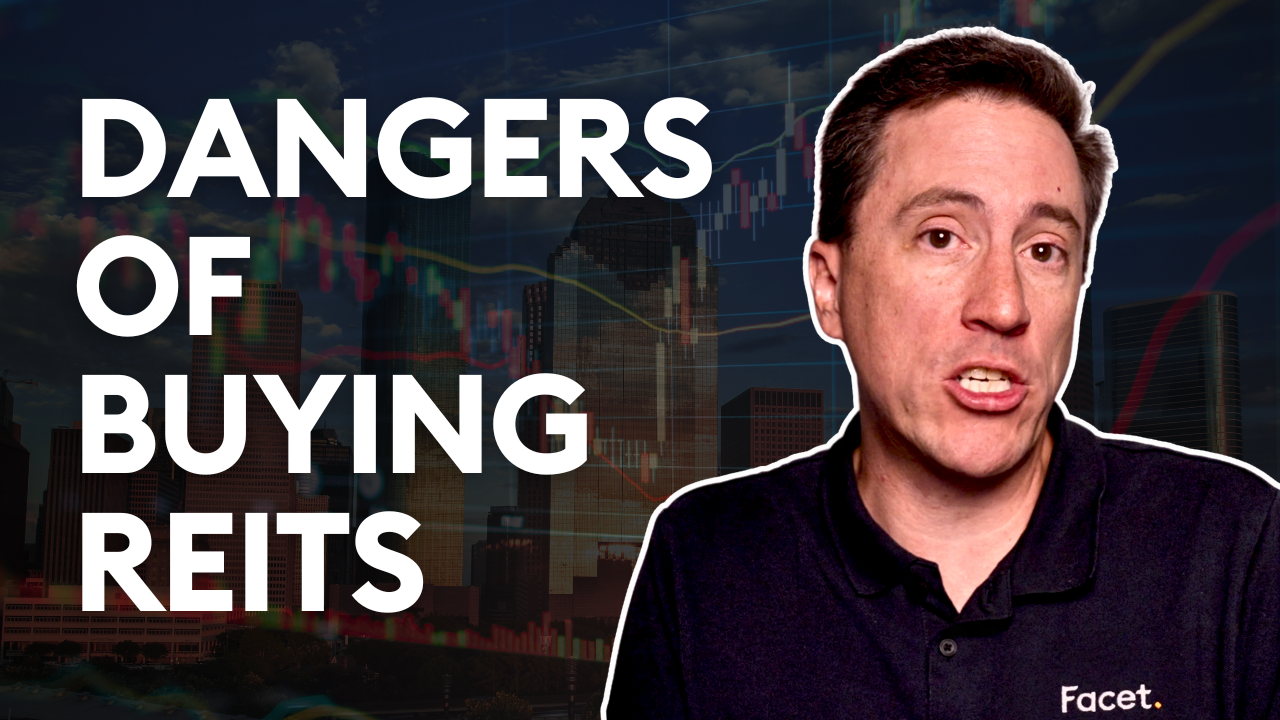
The information provided is based on the published date.
Key takeaways
- Financial planning is defined differently across the industry
- Planner certifications, experience and investment styles can vary greatly
- Financial planners have different approaches to how they deliver advice
- Some firms use technology for a modern, more accessible experience
- What you pay can vary based on the planner, the advice, or your asset level
Finding the right person to handle your financial needs can be a daunting process. With so many confusing titles and designations in the financial services industry today, how are you supposed to know who has your best interests in mind?
Luckily, we've put together eight specific questions to ask a financial advisor before working with one.
#1 Is there a minimum asset amount required to work with you?
Most financial advisors (also called an investment advisor, financial consultant, registered representative, and several other titles) have asset minimums that start between $100,000 to $500,000 (some are even higher). But why is the price of entry so high?
The answer lies in how they get paid. The unfortunate industry standard is to charge a percentage of how much they invest for you.
As a result, your net worth becomes more important than what actually matters - your goals and how they align with your financial life. Unfortunately, the more money you have with them, the more they make off of you.
There are a few consumer-centric planners that have introduced more modern fee structures—hourly fee, flat fee, and subscription fees—with no asset minimums.
Simple, clear fee structures help minimize conflicts of interest and improve transparency.
#2 What advice is included?
Can you help me with things like employee benefits, major purchases, or making tough decisions about money with my partner?
A financial advisor should provide guidance on your entire financial life, not just investments and retirement.
They should offer unbiased, personalized financial advice that integrates into every facet of your life.
Here are just a few things financial advisors should cover:
- Cash flow
- Tax planning
- Benefit elections
- Investments
- Retirement planning
Ask what services they provide
You want more than investment advice. You deserve someone who will help you implement your plan.
Some examples might include:
- Consolidating your investment accounts
- Social Security planning
- Assisting with executing estate planning documents
- Putting appropriate insurance in place
- Making benefit elections
- Lower overall taxable income
If you ask a financial advisor these questions and they look confused or unconfident, that's a red flag. It's time to end the meeting.
#3 Will my financial advisor be a CERTIFIED FINANCIAL PLANNER™ Professional (CFP® Professional) and how often will we meet?
CFP® Professionals have achieved the highest level of certification in the industry.
Rigorous education and experience requirements are combined with elevated ethical standards, including the fiduciary standard. This means they are legally obligated to do what is best for you. This is called "fiduciary duty."
Moreover, the institution that issues the CFP® Professional designation, the Certified Financial Planner Board, is always updating the requirements for professionals to maintain their certification through continuing education.
One example of this is the recent requirement that CFP® Professionals must understand the psychology of financial planning and how individual beliefs, values, and attitudes toward money influence our financial decisions and lives.
As for meetings, your fiduciary financial advisor should be proactively:
- Scheduling bigger picture planning sessions and regular check-ups to measure progress
- Making appropriate adjustments
- Offering the ability to touch base as planned and unplanned life events unfold
#4 What’s your approach to investing my money?
There are three general approaches to investment advice.
1. Firms that focus exclusively on money management (fee-based advisors, wealth management)
Any planning advice is incidental and secondary to the investments. You will typically pay a high management fee, between 1% to 2%, based on the amount they invest for you.
2. Online investment platforms (robo-advisors)
Robo-advisors offer automated investing strategies. Fees may be lower because you are getting less for paying less—a call center, technology platform, automated investment portfolio, and little to no planning.
3. What we believe is financial planning as it should be (flat fee, subscription-based)
This approach starts with a broader financial plan—one that looks at your entire life and not just your money—and personalizes an investment strategy to support it. This solution is designed to fit your life today with the flexibility to evolve as your plans do. This is the type of financial planning we’re committed to providing at Facet, where our investment philosophy is just one piece of your financial puzzle.
#5 What am I actually getting? Do I get a report, or some other deliverables?
Some advisors use software to auto-generate complicated 60+ page reports every quarter, which you may or may not read.
Others provide investment management advice and reports that track your money over time but fall short with broader planning advice – it’s infrequent and reactive versus ongoing and proactive.
More client-focused planners, like those at Facet, provide easy to understand advice, not reports, that are personalized, actionable, and jargon-free.
Ask about their planning process
Ask the advisor how they work with you when you start the relationship and how they provide you with ongoing support through planned and unplanned life events.
Planned events
Planned events are the big life milestones – new job or promotion, starting/raising a family, your dream home, starting a business, retirement, and everything in between.
Unplanned events
The unplanned are those things we can’t always control – loss of a loved one, recessions and market downturns, or tax law changes.
Find someone that can offer comprehensive planning, able to guide you effortlessly through whatever life throws at you. Your short, medium, and long-term financial goals.
#6 Will I speak to the same person every time I call, or will I reach a call center?
What's their communication style? You will see everything from call centers, to small teams, to a dedicated planner.
When you are talking about personal financial matters, you want to talk to someone that knows you and that you trust. A team is OK if they play specific roles—planning, insurance, investments—and you should know this going into the relationship.
#7 Are there any hidden fees, add-ons, commissions, or product purchases required to work with you?
How an advisor charges for their services is only one part of the equation.
Look into any asset or fee minimums, mandatory investments (financial products that carry commissions), or fees that are hidden.
There may be multiple fees involved in the relationship, and you want to know your all-in costs upfront. The more open and transparent the planner is, the better.
Look for a fee structure that makes sense for your situation and aligns with the services provided.
#8 How much will I pay annually, as a dollar amount not as a percentage, for your service?
Most advisors use an assets under management (AUM) model – they charge a percentage based on the assets they invest for you.
Fees are typically between 1% and 2% – for example, if you have $500,000 and are charged 1.5%, you will pay $7,500 per year.
With this fee structure, your fees increase every year as your assets do – at $1,000,000 you would pay at least $10,000 per year (assuming a 1% fee). This adds up to serious money—your hard-earned money—over time. And ask what additional services you get for paying a higher fee. You might be surprised to hear you don’t get more for paying more.
Planners leading the movement to consumer-centric services are introducing more modern fee structures designed to be clear and fair.
With fixed fees and no minimum asset requirements, you pay for what you need and your fees don’t increase just because your assets do. You get the right level of service and keep more of your money working for you (as it should be).
Final word
You have questions, Facet has answers. Our CFP® Professionals get to know you personally and help you navigate your financial journey more confidently.
To learn how you can enjoy the power of choice and the freedom from worry that comes with having a Facet expert on your side, get in touch today.
Facet
Facet Wealth, Inc. (“Facet”) is an SEC registered investment adviser headquartered in Baltimore, Maryland. This is not an offer to sell securities or the solicitation of an offer to purchase securities. This is not investment, financial, legal, or tax advice. Past performance is not a guarantee of future performance.








